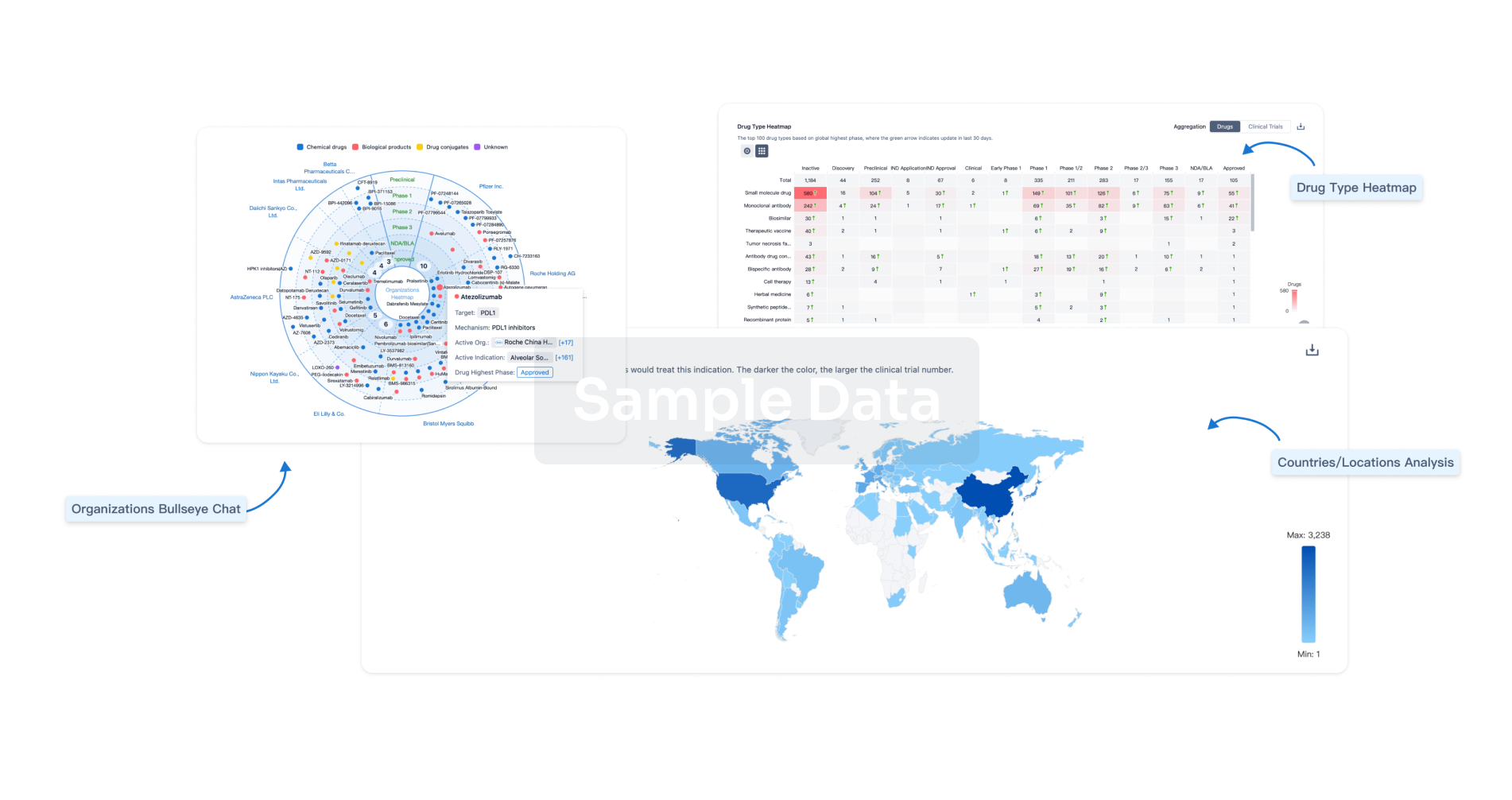Request Demo
Last update 08 May 2025
Lens Subluxation
Last update 08 May 2025
Basic Info
Synonyms Lens Subluxation, Lens Subluxations, Lens subluxation + [19] |
Introduction Incomplete rupture of the zonule with the displaced lens remaining behind the pupil. In dislocation, or complete rupture, the lens is displaced forward into the anterior chamber or backward into the vitreous body. When congenital, this condition is known as ECTOPIA LENTIS. |
Related
30
Clinical Trials associated with Lens SubluxationNCT06931600
Blinding Integrity Following Multiple Sessions of Simulated or Genuine High Velocity, Low Amplitude (HVLA) Manual Chiropractic Adjustments: a Pilot Study
Our primary aim with this trial is to measure participant blinding following two simulated/sham or genuine/real high velocity, low amplitude (HVLA) manual chiropractic adjustments to assess if participants are able to identify their un-disclosed treatment group. Our secondary aims with this trial are to utilize electrocardiography (ECG), impedance cardiography (ICG), and gait analysis before either treatment session and after both treatment sessions to assess if there are any changes with the participants' measurements before and after a sham or genuine HVLA chiropractic treatment.
Start Date01 Apr 2025 |
Sponsor / Collaborator |
NCT05864703
Evaluation of Instantaneous Changes in EEG Activation Patterns Following Application of a Chiropractic Adjustment to the Cervical Spine
The project is a randomized, two-arm trial assessing the immediate impact of upper and lower cervical chiropractic adjustments on brain and heart patterns. Thirty individuals (15 per arm) will be recruited from the general population to participate in the study. Qualified participants will undergo a chiropractic physical exam, assessing for cervical subluxations, and a health history review with a Georgia licensed chiropractor. Individuals will be randomized to either an adjustment group or sham group. The adjustment group will receive an upper and lower cervical adjustment with an instrument designed to provide a gentle, targeted adjustment. The sham group will receive a touch sham at similar cervical locations with the same instrument. Both groups will have a 1-hour recording session with an EEG and ECG set-up plus a series of baseline recordings, interventions, and post recordings.
Start Date29 Jun 2024 |
Sponsor / Collaborator |
NCT06773273
A Novel Approach to Lens Subluxation: CapsuLaser and Flanged Prolene Suture for Cionni Ring Scleral Fixation
Evaluating new technique for treating patients with subluxation using specific laser type and new 6-0 proline fixating novel technique for the capsular bag
Start Date28 May 2024 |
Sponsor / Collaborator |
100 Clinical Results associated with Lens Subluxation
Login to view more data
100 Translational Medicine associated with Lens Subluxation
Login to view more data
0 Patents (Medical) associated with Lens Subluxation
Login to view more data
1,503
Literatures (Medical) associated with Lens Subluxation07 Apr 2025·Retina
Implantable Capsular Hook Technique for Sutureless Scleral Fixation of the Capsular Bag in Lens Subluxation
Article
Author: Shao, Yan ; Qin, Chengyao ; Liu, Zehao ; Zhong, Hong ; Li, Min ; Chen, Chunming ; Sun, Wenxiu
01 Apr 2025·Journal of Human Genetics
Novel FBN1 intron variant causes isolated ectopia lentis via in-frame exon skipping
Article
Author: Sawai, Setsu ; Ichikawa, Tomohiko ; Yokouchi, Hirotaka ; Nishio, Yosuke ; Mashimo, Yoichi ; Baba, Takayuki ; Onouchi, Yoshihiro ; Ogi, Tomoo ; Shimizu, Norihiro
01 Apr 2025·BMJ Case Reports
Microspherophakia with an atypical temporal iris coloboma in a young female
Article
Author: Ramachandran, Keerthana ; Shah, Aahan ; Stephen, Mary ; Kaliaperumal, Subashini
1
News (Medical) associated with Lens Subluxation06 Jan 2022
CAMBRIDGE, Mass., Jan. 06, 2022-- Synlogic, Inc. (Nasdaq: SYBX), a clinical-stage biotechnology company developing medicines for metabolic and immunological diseases through its proprietary approach to synthetic biology, today provided an update on progress towards multiple 2022 clinical milestones.
“The past year was transformational for Synlogic as we achieved clinical proof of concept in phenylketonuria (PKU), a disease that causes tremendous burden to all of those affected. Current treatments leave a need for a safe, effective, and convenient oral treatment option and we are thrilled to be on track to begin the pivotal Phase 3 program in the second half of 2022,” said Aoife Brennan, M.B. Ch.B., Synlogic President and Chief Executive Officer. “Last year brought additional progress, including clinical proof of mechanism in enteric hyperoxaluria, a research collaboration with Roche and a new clinical candidate for homocystinuria (HCU) developed in partnership with Gingko Bioworks. Our plans for 2022 will build on this progress with multiple clinical data readouts expected across our programs.”
Clinical Programs and Anticipated 2022 Milestones
In rare metabolic diseases, Synlogic reported positive interim data from the Phase 2 SynPheny-1 study in patients with PKU with its lead drug candidate, SYNB1618, in September 2021. PKU is an inherited inborn error of metabolism that results in significant disease burden, with current options leaving the majority of PKU patients either untreated or in need of better treatment options. In November, Synlogic announced SYNB1353, a drug candidate designed to consume methionine in the gastrointestinal tract developed through the Company’s research collaboration with Gingko Bioworks, for the treatment of HCU, an inherited inborn error of metabolism that, like PKU, results in significant disease burden with limitations in today’s treatment options.
In April 2021, Synlogic reported proof-of-mechanism with robust dose-dependent urinary oxalate lowering for SYNB8802, which is being developed for the treatment of enteric hyperoxaluria, a progressive, chronic disease characterized by recurrent kidney stones and risk of progressive kidney damage.
Synlogic’s research collaboration with Roche to develop a Synthetic Biotic drug candidate for the treatment of inflammatory bowel disease is continuing with the potential for additional research milestones during 2022. Synlogic and Ginkgo are also advancing their research collaboration to include additional, undisclosed preclinical assets.
About Synlogic
Synlogic is a clinical-stage biotechnology company developing medicines through its proprietary approach to synthetic biology. Synlogic’s pipeline includes its lead program in phenylketonuria (PKU), which has demonstrated proof of concept with plans to start a pivotal, Phase 3 study in the second half of 2022, and additional novel drug candidates designed to treat homocystinuria (HCU) and enteric hyperoxaluria. The rapid advancement of these potential biotherapeutics, called Synthetic Biotics, has been enabled by Synlogic’s proprietary, reproducible, target-specific drug design. Synlogic uses precision genetic engineering of well-characterized probiotics to exert localized activity for therapeutic benefit, with a focus on metabolic and immunologic diseases. Synlogic is also working with Roche in a research collaboration focused on the discovery of a novel Synthetic Biotic for the treatment of inflammatory bowel disease and with Ginkgo Bioworks to include additional undisclosed preclinical assets, combining Synlogic’s approach to Synthetic Biotics with Ginkgo’s Codebase and Foundry services. For additional information visit .
About SYNB1618 and SYNB1934
SYNB1618 and SYNB1934 are orally administered, non-systemically absorbed drug candidates being studied as potential treatments for phenylketonuria (PKU), a genetic disease caused by potentially neurotoxic levels of the amino acid phenylalanine (Phe). Treatment options for PKU are currently limited due to efficacy and safety, with an estimated 80% of US patients remaining in need of treatment, and many of those who are treated in need of additional Phe-lowering. Synlogic designed drug candidates to reduce levels of Phe in people with PKU using precision genetic engineering of the well-characterized probiotic E. coli Nissle. Findings to date support the potential for an efficacious, safe, convenient, and flexible treatment option for PKU, and SYNB1618 has received both Orphan Drug and Fast Track designations by the US Food and Drug Administration (FDA). Both drug candidates are being studied in the Phase 2 Synpheny-1 study, with data expected in H1 2022, and initiation of the Phase 3 program to begin in H2 2022.
About SYNB1353
SYNB1353 is a novel orally administered, non-systemically absorbed drug candidate designed to consume methionine in the gastrointestinal tract thereby lowering homocysteine levels in patients with homocystinuria (HCU). HCU is an inherited disorder characterized by high levels of homocysteine and risks including thromboembolism, lens dislocation, skeletal abnormalities, developmental delay, and intellectual disability. Treatment options for HCU are currently limited due to efficacy and tolerability. SYNB1353 is currently in IND-enabling studies and was developed as part of a research collaboration with Synlogic and Gingko Bioworks. Synlogic holds worldwide development and commercialization rights to SYNB1353, which is expected to begin clinical development and report Phase 1 data in healthy volunteers in H2 2022.
About SYNB8802
SYNB8802 is a novel, orally administered, non-systemically absorbed drug candidate being developed for the treatment of enteric hyperoxaluria, a chronic, progressive disease characterized by high levels of urinary oxalate, the leading cause of recurrent kidney stones. Oxalate crystals can damage kidneys, leading to chronic kidney disease and end-stage renal disease (ESRD). SYNB8802 was designed using precision genetic engineering of the well-characterized probiotic E. coli Nissle to lower urinary oxalate levels by consuming oxalate throughout the GI tract. In 2021, Synlogic reported positive proof-of-mechanism for SYNB8802 from a Phase 1b study that demonstrated lowering of urinary and fecal oxalate levels in healthy volunteers with diet-induced hyperoxaluria. Data from a proof-of-concept study assessing the lowering of urinary oxalate in patients who have undergone Roux-en-Y gastric bypass surgery is expected in 2022.
Small molecular drugOrphan DrugFast TrackCollaborate
Analysis
Perform a panoramic analysis of this field.
login
or

AI Agents Built for Biopharma Breakthroughs
Accelerate discovery. Empower decisions. Transform outcomes.
Get started for free today!
Accelerate Strategic R&D decision making with Synapse, PatSnap’s AI-powered Connected Innovation Intelligence Platform Built for Life Sciences Professionals.
Start your data trial now!
Synapse data is also accessible to external entities via APIs or data packages. Empower better decisions with the latest in pharmaceutical intelligence.
Bio
Bio Sequences Search & Analysis
Sign up for free
Chemical
Chemical Structures Search & Analysis
Sign up for free

